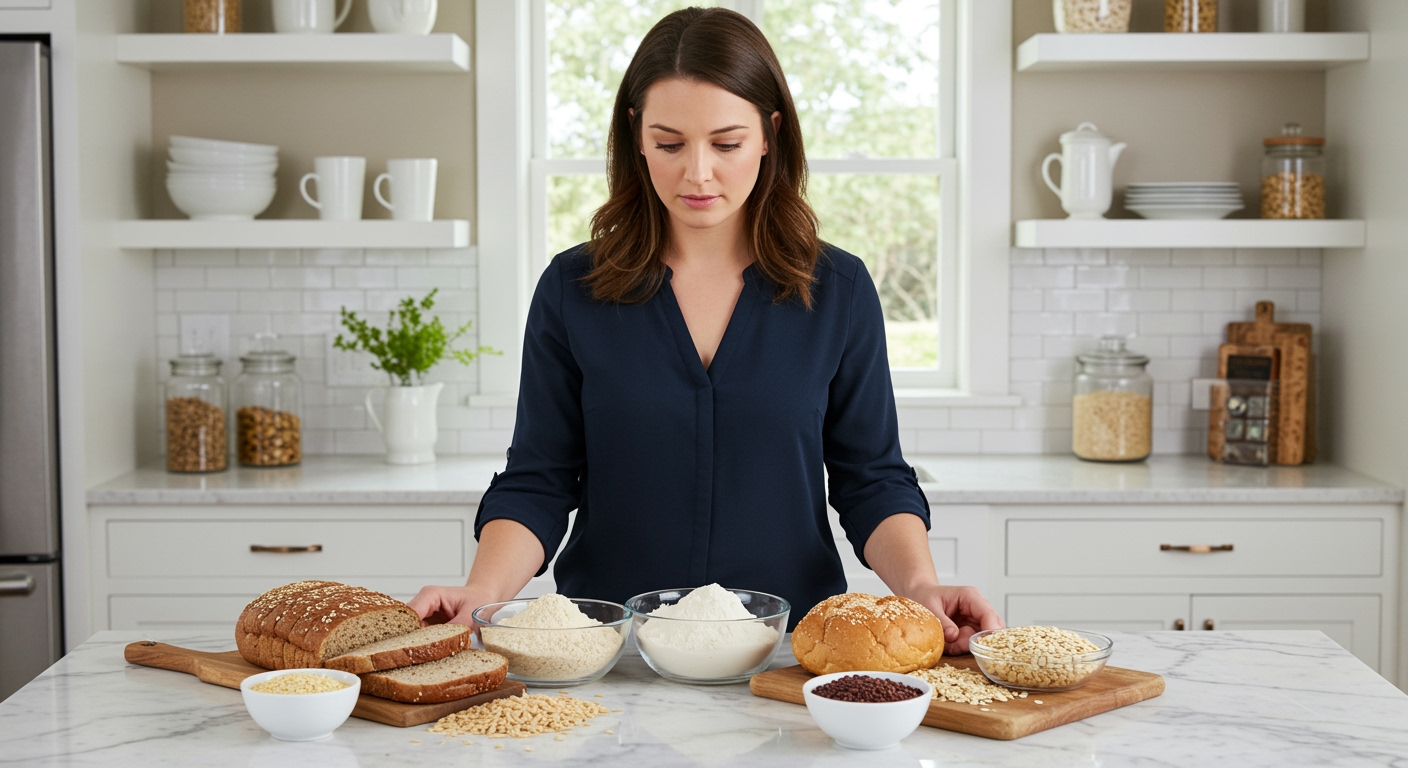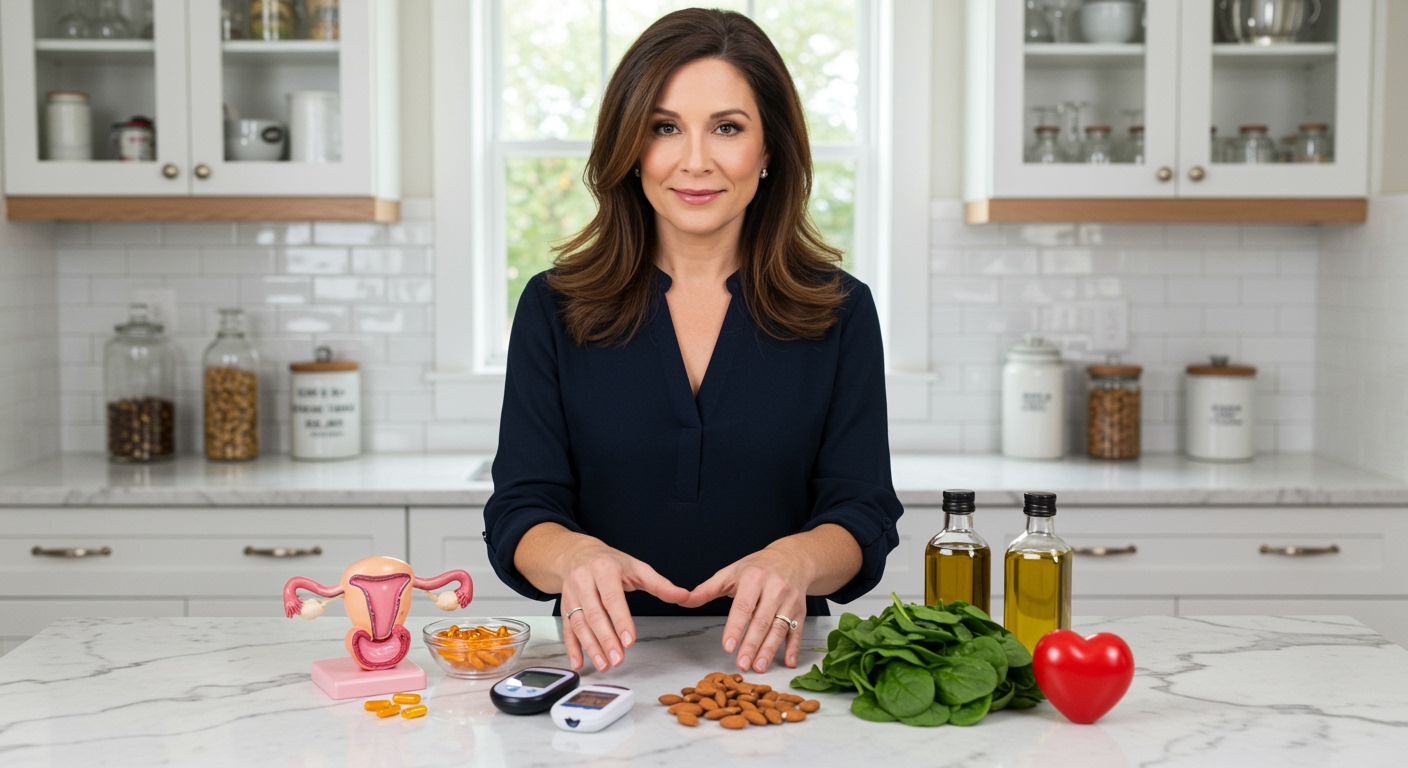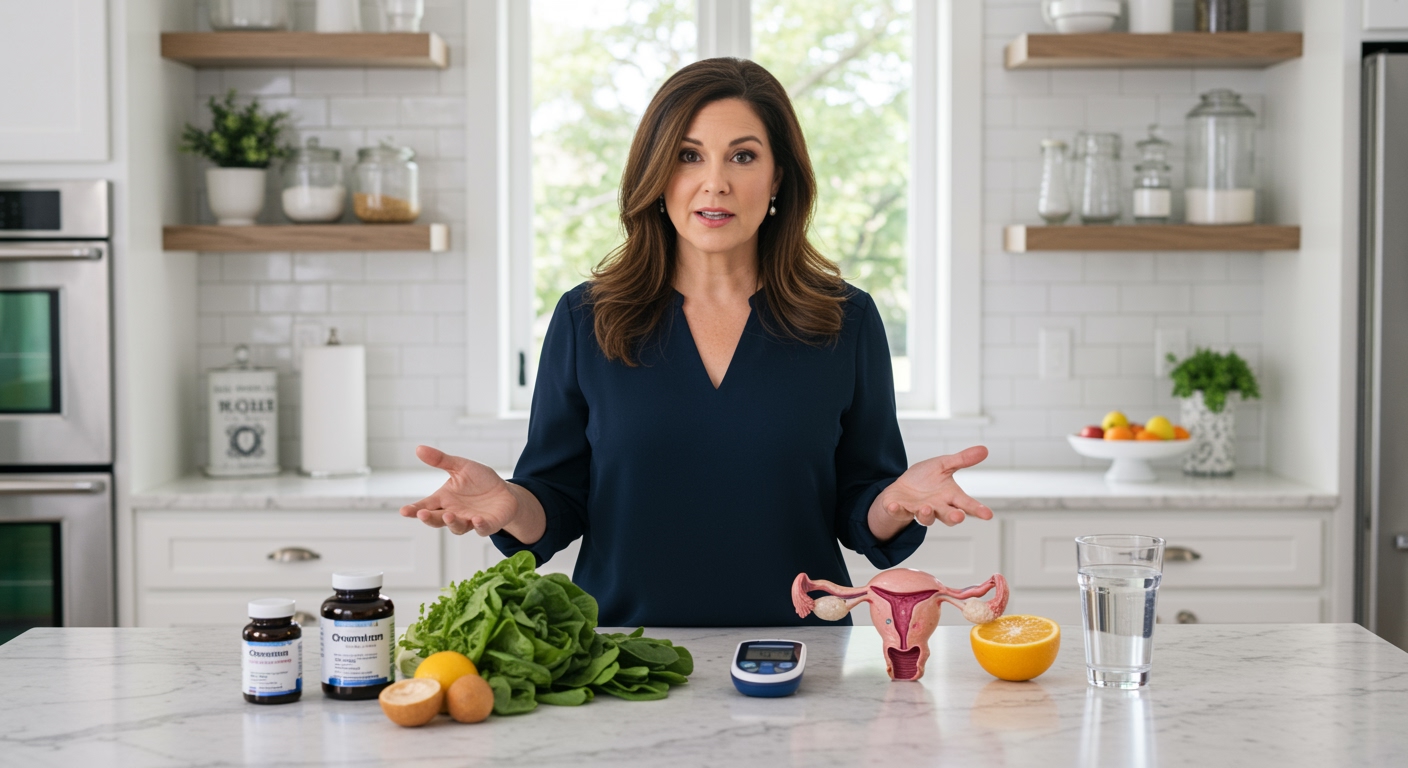✪ Key Takeaway: Whole wheat can worsen PCOS symptoms by spiking insulin levels and triggering inflammation in sensitive women.
Introduction
You walk down the grocery aisle and grab whole wheat bread because everyone says it is healthy.
But what if this seemingly innocent choice is actually making your PCOS symptoms worse every single day.
Hi, I am Abdur, your nutrition coach and today I am going to explain why whole wheat might be sabotaging your hormone balance and what you can do about it.
Does Whole Wheat Spike Insulin Levels?
Whole wheat has a glycemic index of around 69, which is surprisingly high for a grain marketed as healthy.
This means your blood sugar rises quickly after eating whole wheat products, triggering a massive insulin response from your pancreas.
Women with PCOS already struggle with insulin resistance, where their cells do not respond properly to insulin signals.
When you add high-glycemic whole wheat to this equation, you create a perfect storm of elevated insulin levels that can last for hours.
Research shows that chronically high insulin directly stimulates your ovaries to produce more testosterone and androgens.
These excess male hormones are responsible for many PCOS symptoms including irregular periods, acne, and unwanted hair growth.
✪ Fact: Whole wheat bread can raise blood sugar faster than table sugar in some people.
Can Wheat Trigger Inflammation In PCOS?
Wheat contains several inflammatory compounds that can worsen PCOS symptoms beyond just blood sugar effects.
The most problematic is gluten, a protein that triggers immune responses in sensitive individuals even without celiac disease.
Studies reveal that women with PCOS have higher rates of gluten sensitivity compared to healthy women.
When your immune system attacks gluten, it releases inflammatory molecules called cytokines throughout your body.
This chronic inflammation disrupts your hormone production and makes insulin resistance even worse over time.
Wheat also contains lectins and phytic acid, which can damage your intestinal lining and reduce nutrient absorption.
Poor nutrient status directly affects your ability to balance hormones and manage PCOS symptoms effectively.
✪ Pro Tip: Try eliminating wheat for 30 days to see if your PCOS symptoms improve significantly.
What About Fiber And Nutrients In Whole Wheat?
Many people defend whole wheat because it contains more fiber and nutrients than refined white flour.
While this is technically true, the benefits are often overstated when you look at the complete nutritional picture.
Whole wheat provides about 3 grams of fiber per slice, but vegetables like broccoli give you more fiber with zero blood sugar impact.
The B vitamins and minerals in whole wheat are mostly synthetic additions from fortification, not naturally occurring nutrients.
More importantly, the antinutrients in wheat can actually block absorption of important minerals like zinc, iron, and magnesium.
These minerals are crucial for hormone production and insulin sensitivity in women with PCOS.
You can get superior nutrition from nutrient-dense alternatives without the negative metabolic effects of wheat.
✪ Note: Antinutrients in wheat can block up to 50% of mineral absorption from your meals.
Which Alternatives Work Better For PCOS?
The good news is you have many delicious alternatives that will not sabotage your hormone balance.
Almond flour and coconut flour make excellent substitutes for baking with minimal impact on blood sugar.
For grain-based options, quinoa and wild rice provide complex carbohydrates with lower glycemic responses.
Cauliflower rice has become incredibly popular because it mimics the texture of grains while providing extra vegetables.
Sweet potatoes offer natural sweetness and beneficial nutrients when you need satisfying carbohydrates.
The key is choosing alternatives that provide steady energy without triggering the insulin spikes that worsen PCOS.
Focus on whole foods rather than processed alternatives that may contain hidden sugars or inflammatory oils.
✪ Pro Tip: Start with one wheat substitute at a time to find options your taste buds actually enjoy.
The Bottom Line
Whole wheat is not the health food it is marketed to be, especially for women struggling with PCOS and insulin resistance.
Your hormones deserve better fuel than foods that spike insulin and trigger inflammation.
I would love to hear about your experiences with wheat and PCOS in the comments below, or any questions you might have about making this dietary transition.
References
At NutritionCrown, we use quality and credible sources to ensure our content is accurate and trustworthy. Below are the sources referenced in writing this article:
- Frontiers in Nutrition: Nutritional Management of Polycystic Ovary Syndrome
- PMC: PCOS and Gluten Connection
- Dietitian Success Center: PCOS and Gluten
- Allara Health: Dairy and Gluten PCOS Blog





